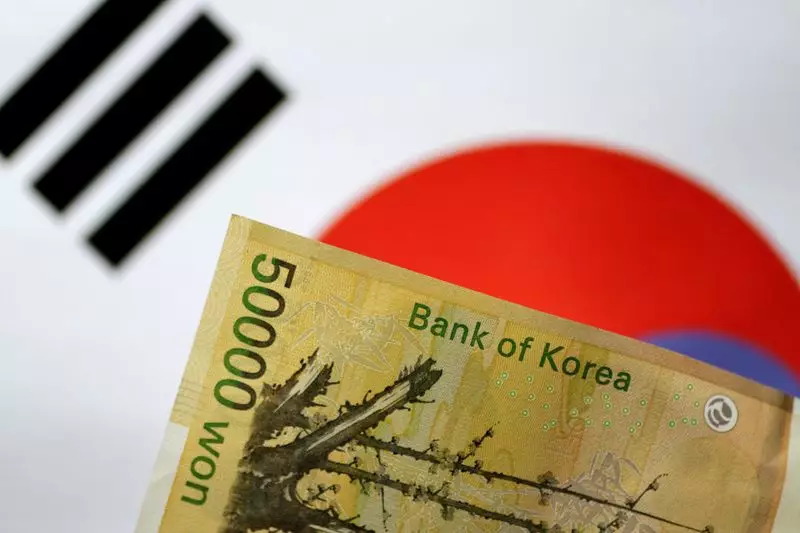The health of South Korea’s economy, which stands as the fourth-largest in Asia, is currently being overshadowed by a myriad of political challenges. In light of recent events, Bank of Korea Governor Rhee Chang-yong has emphasized that the stability of the political environment is now the premier factor influencing economic performance. In previous contexts, global elements such as United States monetary policies and trade relations were prominent concerns, but the unanticipated turbulence stemming from domestic politics has eclipsed these factors. Rhee’s assertion that the normalization of political processes is paramount signifies a keen awareness of the intricate relationship between governance and economic vitality.
In a recent decision, the Bank of Korea elected to keep its policy interest rates unchanged at 3.00%. This pause in monetary adjustments appears tethered not only to traditional economic indicators but also to the need to provide stability amid political upheaval. Notably, this decision follows the government’s reduction of the 2025 economic growth forecast from 2.2% to a mere 1.8%, indicative of the pervasive anxiety that pervades the political landscape. This reduction has profound implications, as it reflects both the immediate consequences of the current political instability and a broader, long-term threat to investor confidence in South Korea.
One of the key discussions surrounding Rhee’s comments was the weakening of the South Korean won, influenced in part by the prevailing political environment. Interestingly, Rhee alluded to recent political developments, particularly the arrest of impeached President Yoon Suk Yeol, suggesting that this event created a brief moment of relief for the won’s value. The financial market responded to this news positively, indicating that political resolutions—even if temporary—can lead to a more favorable economic environment. On an encouraging note, following Yoon’s arrest, the won saw a slight strengthening, suggesting that market actors are keenly responding to political events.
Despite the seeming stabilization following Yoon’s arrest, it would be premature to declare an end to the ongoing political turmoil. The president’s resistance to further questioning in the investigation regarding his attempted imposition of martial law underscores the lingering controversies that could continue to destabilize the political scene. This scenario reveals a critical aspect of political crises: the effects are rarely immediate and can often prolong economic uncertainty. As the political narrative unfolds, it will require careful monitoring, as the implications for monetary policy and overall economic health could evolve rapidly.
As South Korea grapples with significant internal challenges, the necessity for political stability emerges as an undeniable cornerstone of economic recovery and growth. All stakeholders—from government officials to investors—must grasp the interconnected nature of these elements as they navigate this turbulent landscape. The unfolding events will not only define South Korea’s immediate economic trajectory but may also shape its long-term financial credibility on the global stage.

